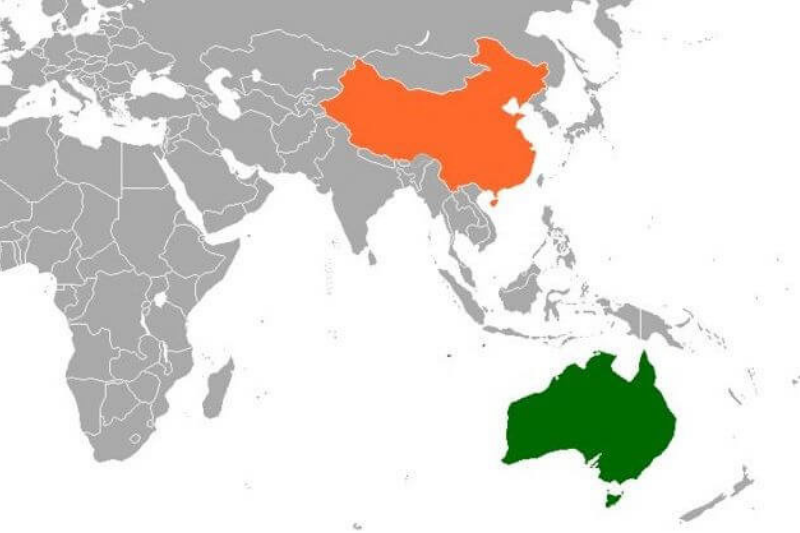Two Australian Politicians Banned From China Over Criticism Of The CCP

The Organization for World Peace, 20 November 2019

Jasper Hansen – Two Liberal politicians have been barred from entering China after they refused to retract criticisms that they had directed at the Chinese government. The two MPs, James Paterson and Andrew Hastie, were due to undertake a “study tour” in China next month, but both have since had their visa applications rejected. Both politicians have been particularly critical of China’s human rights record, as well as its continued interference in Australian politics.
The Chinese embassy announced that such “unwarranted attacks” that “challenge China’s sovereignty, disrespect China’s dignity and undermine mutual trust between China and Australia” would not be tolerated. The embassy reiterated the two would only be allowed to visit if they were to “genuinely repent and redress their mistakes”. Both have refused to do so. MP Hastie stated that himself and Senator Paterson had been banned because they had been “outspoken about the Chinese Communist Party and […] been vocal on human rights issues”—particularly about the situations in Xinjiang and Hong Kong. “We will not repent for standing up for Australian sovereignty, our values, our interests and standing up for people who can’t stand up for themselves,” Hastie added.
Mr. Hastie has previously compared the West’s failure to combat a rising China comparable to the failure to hold back a rising Nazi Germany, arguing that sterner measures need to be taken to combat growing Chinese influence. Mr. Paterson has similarly criticized the Chinese state and the current violence taking place in Hong Kong. Despite Mr. Hastie’s hyperbole, it is evident that China’s global rise has enabled it to act with considerable latitude in the pursuit of its political agenda. Despite the unprecedented repression of the Uyghur minority in Xinjiang and the violent crackdown in Hong Kong, there is little pressure that the international community can exert on China due to the economic prowess that the country exerts globally. Australia presents as a blatant example—as well as a warning for other nations—of the extent to which Chinese money can undermine a country’s sovereignty. It is evident enough as was revealed in 2016 that the largest donor to both Australian political parties was a Chinese billionaire affiliated with the CCP. This is only one example of many where Chinese money has been used to promote itself and buy influence throughout universities and political parties, as well to obtain vital infrastructure and real-estate. Moreover, it is strange in the first place that it is commonplace for Australian politicians and tycoons to even take part in these so-called “study tours” in China. Such tours consist of an all-expenses-paid trip to China where Australian politicians and business executives are able to become acquainted with government officials, wealthy businesspeople and economists, among others. Evidently, Australian elites are more than eager to make lucrative deals with the Chinese government, despite the risk that this poses to their country’s sovereignty.
Diplomatic ties between China and Australia have become increasingly strained in recent years as a result of China’s increasingly aggressive interference in Australian politics, as well as due to China’s own domestic policy. However, as China has also risen to become the country’s largest trading partner, Australian leaders find themselves incapable of taking actions to curb Chinese influence, as it would risk alienating an indispensable source of economic prosperity. Thus, whether inadvertently or not, Australia has become completely dependent on China to ensure the success of its economy, and is now beginning to see that China is more than prepared to take advantage of and utilize this dependency to its own ends. The future of Australian politics will ultimately come down to whether its elites are able to resist the allure of Chinese money, or whether they will succumb to it; in which case it is likely we will only see a continuation of the current situation, and a tightening of China’s grip over all aspects of Australian politics, industry, and culture.
https://theowp.org/two-australian-politicians-banned-from-china-over-criticism-of-the-ccp/

